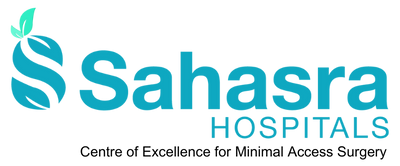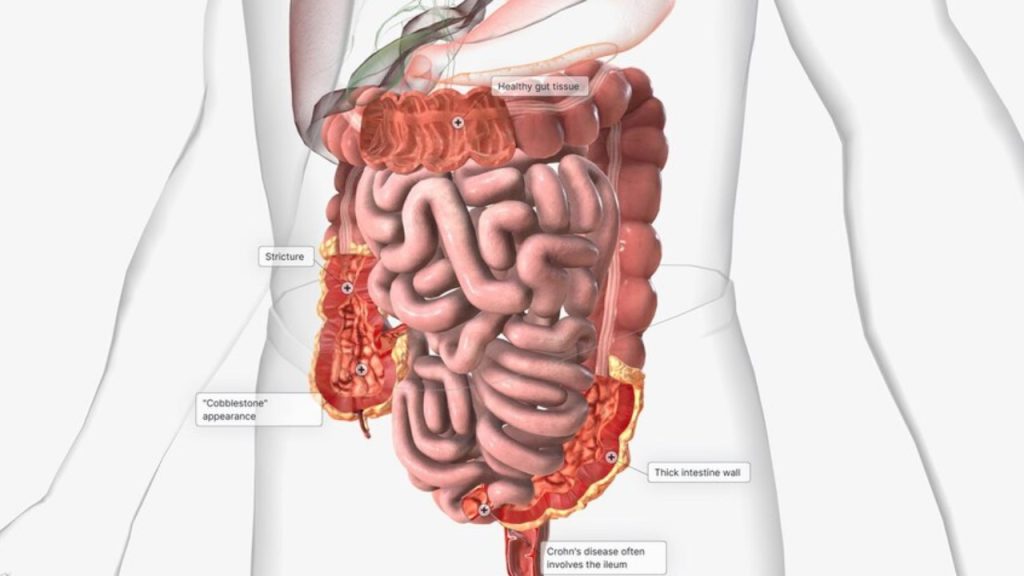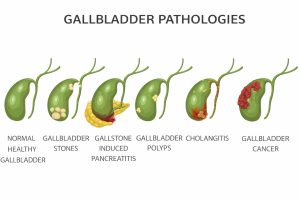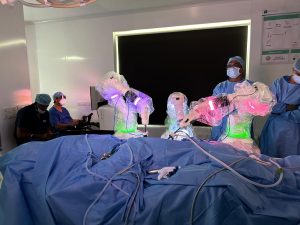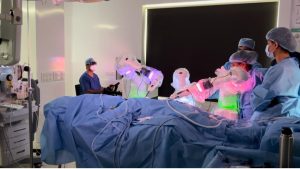Crohn’s disease causes inflammation in the gastrointestinal tract. The condition primarily affects the small intestine’s distal part, also known as Ileum. However, any part of the Gastrointestinal tract may be affected
Crohn’s disease causes thickening of the intestinal wall, leading to the blockage of food passage. The affected area of the intestine may exhibit impaired nutrient absorption. Occasionally the intestine may perforate. This could result in an abscess, peritonitis or fistula (communication with skin or other intestinal segment)
Treatment for Crohn’s disease
The vast majority of patients with Crohn’s disease are managed with medical therapy. Medications include mesacol, azathioprine, steroids and in selected patients biologicals.
What are the concerns with ‘biologicals?
Despite their effectiveness of biologicals in patients in patients with unresponsive to standard medical therapy, fistulating crohn’s is an important indication
- l Reactivating of tuberculosis
- l Predisposed to other acquired infections
- l With response, a longer duration of therapy
- l Significant cost consideration, unless covered by insurance, it is not a practical option in several Indian patients
Some of the common surgical procedures for Crohn’s disease:
- Strictureplasty:- A surgical procedure that aims to alleviate intestinal obstructions by enlarging narrowed segments of the intestine. The surgeon does not remove any part of your intestine.
- Small bowel resection – This is appropriate when short segments of small intestine involved. When larger areas of small intestine are involved a combination of resection and stricturoplasty may be employed.
- Fistula excision: This may involve treating the fistula. Fistulas in Crohn’s disease is commonly found between different sections of the intestine, the intestine, and another structure (like the bladder), or the intestine and the skin. The procedure depends on the fistula’s location.
- Colectomy:-Surgical removal of the colon due to severe illness, while keeping the rectum intact.
- Proctocolectomy is a surgery to remove the colon and rectum when they are severely damaged.
- An end ileostomy is a surgical procedure in which the terminal portion of the small intestine is redirected through an abdominal wall opening known as a stoma.
- Abscess drainage refers to a surgical procedure performed by a surgeon to gain access to and eliminate an infection in the abdominal region, pelvis, or perianal area. A tube is subsequently inserted to aid in the removal of pus.
- An ileostomy is a surgical procedure that redirects faecal matter, either temporarily or permanently, by establishing an abdominal wall opening called a stoma.
Why Sahasra Hospitals, Jayanagar?
Dr Srikanth Gadiyaram and team have a 20 plus years of experience in surgical management of Crohn’s disease. This ensures, the right surgical procedure chosen for a right indication with appropriate optimization for surgery and best surgical outcomes
Role of surgery in crohn’s:-
- l Establishing diagnosis Eg:- Small bowel crohn’s
- l Limited disease eg:- Ileal segment
- l Failure of medical therapy
- l Intolerance, complications with medical therapy
- l Complications of disease
Why is there a delay in referral of patients for surgery where an indication for surgery exists:-
- When the physician does not have a surgeon with experience in treating Crohn’s in the interdisciplinary team at his facility. The physician/medical gastroenterologist kind of owns that patient
- Willingness to treat empirically
- lEscalating medical therapy in limited disease unresponsive to standard therapy Eg:- introducing biologicals
- lThe notion that surgery would carry a very high morbidity
- l Patients fear of a stoma (ileostomy/colostomy)
Are complications greater in Crohn’s? How do you reduce then?
- l Morbidities are higher when compared to patients undergoing similar procedure for another indication such as small bowel resection for tumour or other causes of stricture.
- l Leaks from anastomosis are slightly higher than when performed for other elective procedures.
- l Good results with preoperative optimization and perioperative nutritional
Support.
Dr. Srikanth Gadiyaram is a renowned gastroenterologist with over 20 years of experience. He recognizes that each patient’s path to optimal health is unique. Sometimes, people have the choice between medicine and surgery. This approach aims to provide tailored treatment plans for individual needs.
Our team aims to improve patient outcomes and well-being by combining medication and surgical procedures. For further Guidance Call us at 9880105829 to book an appointment for pain or discomfort. This is especially true if you have other symptoms indicating a more serious condition, like gallstones.https://doi.org/10.1111/ases.13091
